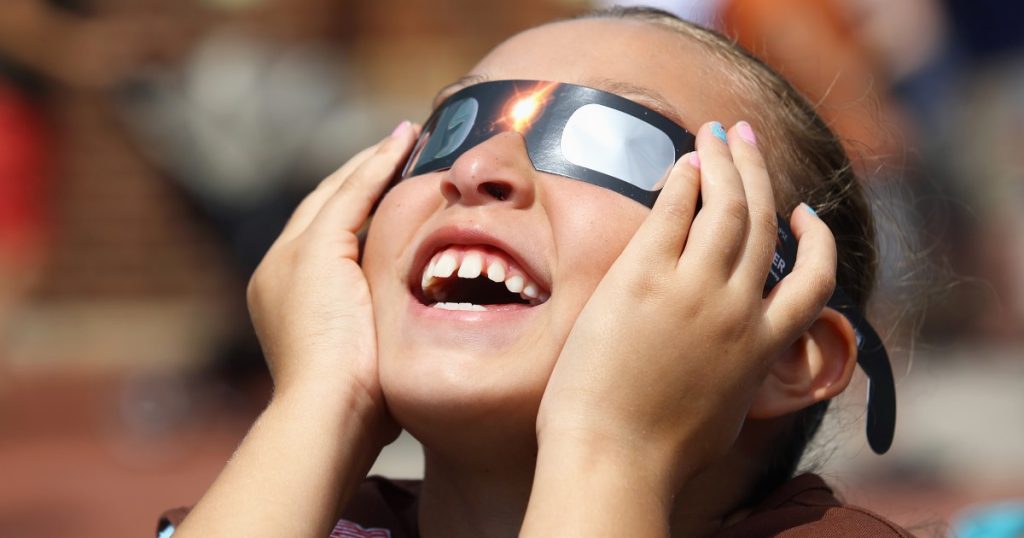The solar eclipse on April 8th will provide a spectacular show in the sky, as the moon moves between the Earth and the sun, casting a shadow on our planet. The path of totality, where the moon will fully block the sun, will pass over Mexico, the U.S., and Canada. NASA reports that 99% of people in the U.S. will be able to witness a partial or total eclipse. However, looking directly at the sun during the eclipse can be harmful to your eyes without proper protection.
Dr. Russell N. Van Gelder warns that even a few seconds of viewing the sun without protection can burn the macula, leading to permanent vision loss. The damage is known as solar retinopathy, resulting in blind spots, distortions, or loss of contrast in central vision. Reports have shown that individuals have become legally blind in at least one eye after watching eclipses. Young adults may be more susceptible to eye injury due to larger pupils and less awareness of the risks associated with improper eyewear.
Regular sunglasses are not sufficient for protecting your eyes from the sun’s rays during an eclipse. The only safe way to view the solar eclipse is with special glasses or handheld solar viewers that have filters designed to block the sunlight. These glasses should meet the standard known as ISO 12312-2 and provide a million-fold decrease in the amount of light entering the eye. The American Astronomical Society provides a list of reputable vendors for purchasing these glasses.
Glasses that met the ISO 12312-2 standard during the 2017 solar eclipse can be reused as long as they are not damaged. It is important to inspect the glasses before using them to ensure they are in good condition. Wear the glasses whenever looking at the sun during the eclipse, even if it is a partial eclipse with a small sliver of the sun peeking out. Symptoms of solar retinopathy, such as blurry vision, central blind spots, color deficiencies, distorted vision, and headaches, may appear within hours of sun gazing.
If you experience vision problems after viewing the eclipse, it is crucial to visit an ophthalmologist promptly. While there is no definitive treatment for solar retinopathy, some individuals may partially recover their vision. It is essential to prioritize eye safety by using the proper protective eyewear when viewing the solar eclipse to prevent permanent damage to the eyes. Taking the necessary precautions will allow you to enjoy the spectacle without worrying about potential harm to your vision.


